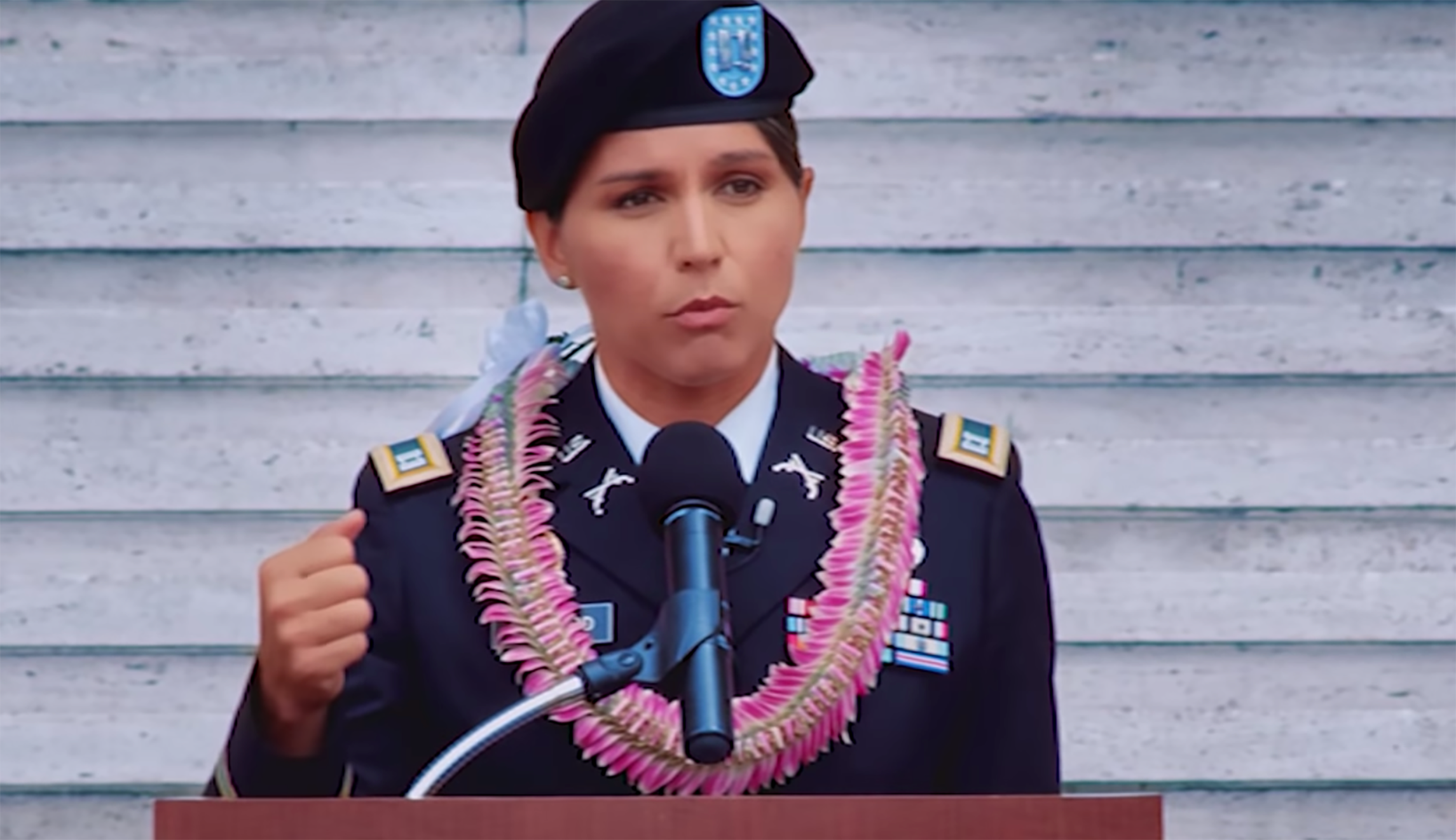Rep. Tulsi Gabbard would the first president in a half-century elected while on active military service if she makes it to the White House in next year’s election.
The Hawaii Democrat said late last week she will run for president in 2020. If she can navigate what promises to be the most crowded Democratic primary scrum in history and then beat President Trump in November, the Hawaii National Guard major will join a small group of presidents who won the office while still entitled to wear uniform.
Former President Harry S. Truman, a World War I veteran, was an inactive reservist through his presidency. He retired from the Officers’ Reserve Corps at the end of January 1953, the month he completed his only full four-year term as president.
While Truman was the last soldier to win the presidency, Lyndon Johnson — a naval man — was the last serviceman. He resigned as a commander in the Navy Reserves in January 1964, a few months after he took office following the assassination of former President John F. Kennedy.
Former President Dwight D. Eisenhower, World War II veteran and NATO supreme commander through the early months of 1952, resigned his commission when he entered politics. The last president to have served in combat was George H.W. Bush, one of the Navy’s youngest aviators in World War II, where he served with distinction in the Pacific Theater.
In recent decades, a number of presidents have steered clear of military service, or at least combat duty. Neither President Trump nor former Presidents George W. Bush and Bill Clinton fought in Vietnam. Trump received deferments due to bone spurs, Bush signed up for the Air National Guard, and Clinton “worked to avoid the draft, at times cleverly,” according to the New York Times.
Heading into the 2020 presidential race, Gabbard stands out with over a decade of service in a political landscape scarce of combat veterans — especially among Democrats. Gabbard could not hold her military position while president, since the commander in chief outranks all other officers. Gabbard, now 37, would likely have either to resign her commission or pause her service.
To my friends and fellow veterans, thank you for your service and sacrifice. The love you have for our country and our people shines through in your commitment to put service before self. Our nation’s leaders must learn from your example. #veteransday pic.twitter.com/nkc08Hgknr
— Tulsi Gabbard (@TulsiGabbard) November 12, 2018
Though in the younger tier of Democratic presidential candidates, declared or intended, Gabbard would bring to the field considerable experience in uniform and elected office. She became a state legislator in Hawaii at 21 and served one term before deploying with the Hawaii Army National Guard on two tours in the Middle East, one in Kuwait and another in Iraq.
After a short stint on the Honolulu City Council, Gabbard in 2012 won an open House seat, becoming one of the chamber’s youngest members. She earned liberal cred in the 2016 presidential race by shunning party favorite Hillary Clinton in favor of Sen. Bernie Sanders, I-Vt. She resigned in protest from the Democratic National Committee, accusing party leaders of giving Clinton a systematic edge on her way to claiming the nomination over Sanders in a hard-fought race. The Hawaii congresswoman proved a powerful surrogate for the underdog Sanders campaign, highlighting their shared opposition to the Iraq war.

Gabbard is a vocal foe of military intervention. She’s frequently said government resources could be used better building up the home front — a sentiment in line in many ways with Trump’s foreign policy outlook. She also aligns with the president on pulling troops out of Syria, a move critics say could create a power vacuum the Russians will inevitably take advantage of.
“In short, when it comes to the war against terrorists, I’m a hawk,” Gabbard told the Hawaii-Tribune Herald in 2016. “When it comes to counterproductive wars of regime change, I’m a dove.”
That approach has raised eyebrows in the foreign policy establishment, as has the glowing coverage she’s received in Russian state media.
“Our actions in Syria must be based on strategy, which is based on what our mission actually is. What are we trying to achieve?” Gabbard tweeted early last year. “The neocons/neolibs calling on Trump to attack Syria either don’t know what the mission is or are pursuing a mission that is contrary to U.S. interests.”
Gabbard’s campaign did not respond to requests for comment.
